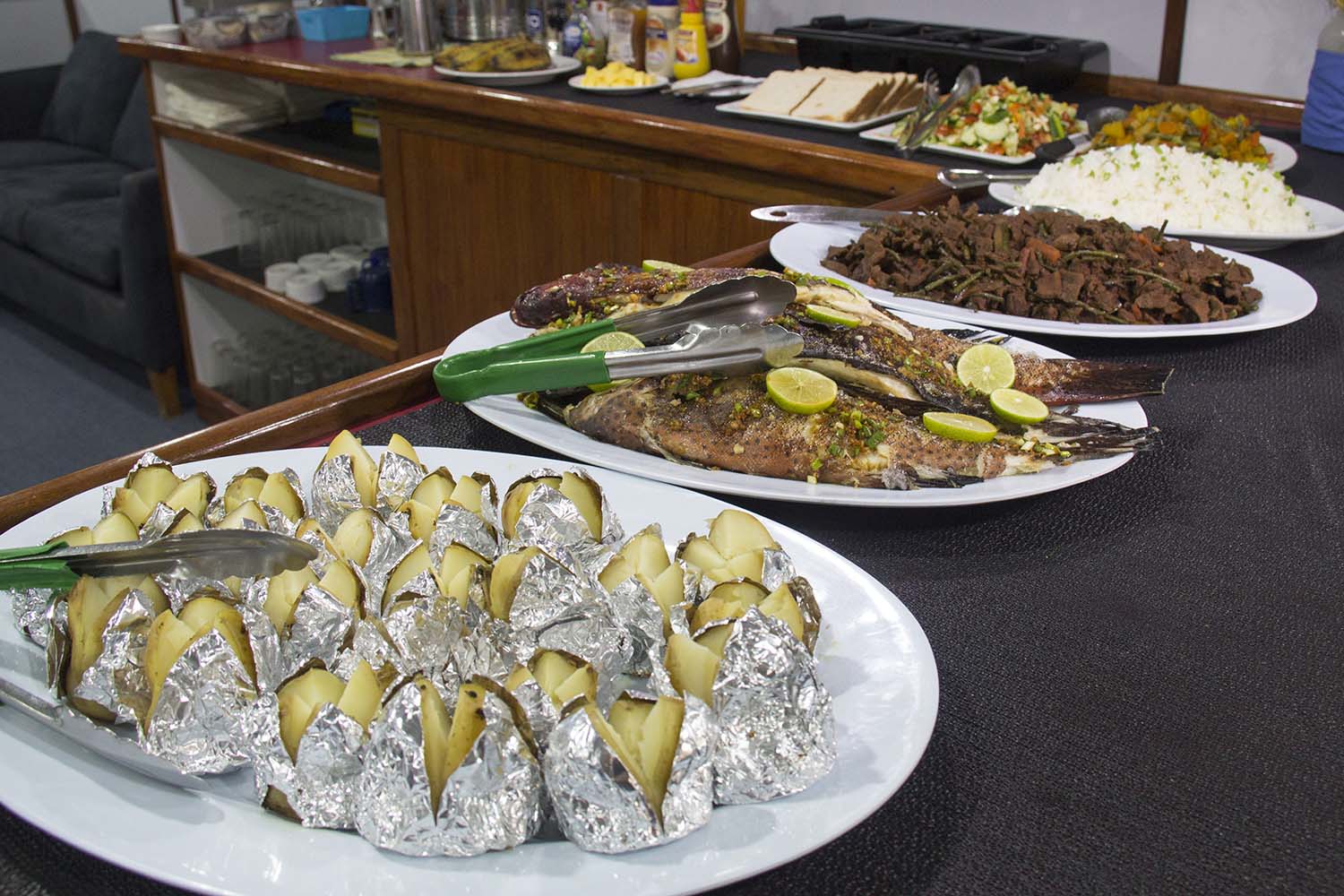Introduction to Solomon Islands cuisine
Solomon Islands cuisine is a melting pot of flavors and ingredients from different cultures, including Polynesia, Melanesia, and Micronesia. The local cuisine is characterized by its use of fresh and simple ingredients, such as seafood, taro, yams, cassava, and coconut milk. Most of the dishes are grilled, boiled, or steamed and served with rice or breadfruit. Some of the popular dishes are kokoda, which is a raw fish salad marinated in lime juice and coconut milk, and fish curry with taro.
Traditional food customs and etiquette
In Solomon Islands, it is customary to share food with others, especially during communal feasts. It is considered impolite to refuse food that is offered to you. When eating with your hands, it is customary to use your right hand only, as the left hand is considered unclean. It is also customary to wash your hands before and after eating. Women are usually expected to serve men before serving themselves, and children are expected to wait until the elders have eaten before they can start eating.
Significance of food in Solomon Islands culture
Food plays an important role in Solomon Islands culture, as it is seen as a way to bring people together and strengthen relationships. Sharing food is a way of showing hospitality and generosity. Traditional feasts, such as weddings, funerals, and festivals, are an opportunity to showcase the local cuisine and celebrate together as a community. Food is also used as a form of payment or compensation in some areas.
Eating habits and table manners
In Solomon Islands, it is common to eat with your hands, especially when eating traditional dishes. However, utensils are also used in more formal settings. When using utensils, it is customary to hold them with your right hand and to place them on the plate or bowl when not in use. It is considered impolite to talk with food in your mouth or to slurp your soup. Burping is not seen as impolite, but blowing your nose at the table is considered offensive.
Social etiquette during communal meals
During communal meals, it is customary to serve the food on a communal platter or banana leaf and to eat together from the same dish. The host usually serves the guests first before serving themselves. It is also customary to offer food to visitors or strangers as a sign of hospitality. It is impolite to leave the table before everyone has finished eating or to take more than your share of food.
Taboos and dietary restrictions to observe
Solomon Islands has a rich tradition of taboos and dietary restrictions that vary depending on the region and the ethnic group. For example, in some areas, it is taboo to eat certain types of fish or shellfish during certain seasons or in certain locations. It is also taboo to eat the head of a fish or to waste food. Some people also follow dietary restrictions based on their religious beliefs. For example, some Christians observe Lent by abstaining from meat and other animal products. It is important to be aware of these taboos and restrictions when dining in Solomon Islands to avoid offending your host or other guests.

